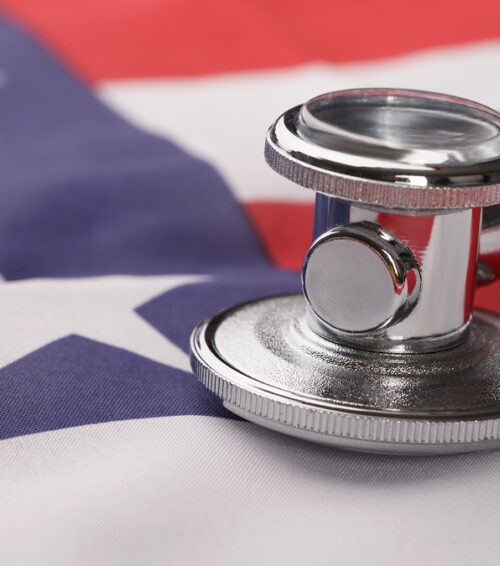
It should come as no surprise that the United States military has provided a wide variety of opportunities for nurse practitioners and physician assistants. In fact, the Yale School of Medicine says that the PA profession was born of the desire to make use of the skills medics and corpsmen gained during the conflict in Vietnam.
Since that time, expanded career-advancement opportunities have made the military an attractive option for NPs and PAs alike.
The Use of PAs in Context
AdvanceWeb notes it’s no coincidence that the first PA program — started at Duke University — began in 1966, in the middle of the Vietnam Era. The first graduating class was handpicked, and all four students had backgrounds in military medicine courtesy of the U.S. Navy. The PA program was seen as a way for these corpsmen to transition from military to civilian healthcare and to help deal with a physician shortage. (Yup, it was an issue then, too!)
Around 2,600 PAs have graduated from military-sponsored training programs since the 1970s, and since 1996, the Interservice Physician Assistant Program, based at Fort Sam Houston, has trained PAs for several military branches. It holds three separate classes throughout the year, composed of around 60 students each. This helps meet the demand for trained healthcare professionals, especially since the beginnings of the wars in Iraq and Afghanistan.
It is estimated that the Army currently has 698 PAs on active duty. The Navy has more than 100, the Air Force has 275, and the Coast Guard has 42. This is not counting those employed by the Veterans Association (VA) to take care of troops as they return home.
While PAs began their relationship with the military earlier, NPs can find homes there as well. The variety of opportunities, plus the possibility of working with considerable autonomy and the ability to train in various subspecialties, makes the military a very attractive career path.
What the Military Offers NPs and PAs
The various branches of the military offer several options for training, service, and advancement. They also provide pay and benefits packages that may include generous sign-on bonuses, loan repayment for training, and other benefits. Here are some examples:
- The Army actively recruits a variety of advanced practice registered nurses (APRNs), including certified nurse midwives, family nurse practitioners, psychiatric nurse practitioners, and nurse anesthetists, to care for soldiers and their families both in the U.S. and abroad.
- The Coast Guard has developed a Direct Commission Physician Assistant (DCPA) program, which offers PAs the opportunity to attend a Direct Commission Officer course, accept reserve commissions, and serve at Coast Guard clinics, training centers, and academies to fulfill an active-duty contract that lasts for three years. It allows for PAs to operate with a very high level of freedom in a variety of specialty areas.
- The Navy recruits PAs in the U.S. and abroad. PAs who want to participate must, after graduation, attend a five-week course in Officer Development School, which is a short but intense introduction to Navy life. PAs work with other members of the military healthcare team and operate with considerable autonomy, though they still collaborate with physicians. They are also able to participate in relief missions around the world.
- The Air Force recruits PAs as well as nurse anesthetists, certified nurse midwives, and psychiatric nurse practitioners. NPs and PAs go through officer training school and enter the military as officers. Jobs are available in hospitals, clinics, and other healthcare settings in the U.S. and around the world.
On the Flip Side
It is important to note that a military career is not the right choice for every NP or PA. AdvanceWeb says that the extended time spent in both Iraq and Afghanistan has led to a considerable demand for — and increased pressure on — active-duty healthcare workers, and that there has been an increased number of deployments overseas.
For example, the average Army officer is deployed for a tour of duty lasting 12–13 months, then receives around 10 months off before being re-deployed. The workweek is long — sometimes in excess of 60 hours — and the pay is not always competitive when compared to similar civilian jobs. There is also, of course, the stress involved in working in areas of combat.
For many people, though, benefits such as loan repayment, the opportunity to practice with considerable autonomy, and the additional training and experience are enough to make the military a definite possibility as a career choice. In addition, the ongoing conflicts abroad make it likely that demand for these educated professionals will remain high into the foreseeable future.
If serving in the military isn’t right for you, there’s good news: NPs and PAs have other exciting career and travel opportunities available to them, such as locum tenens positions, which allow them to practice to the full extent of their abilities while learning new skills that enhance their careers.

